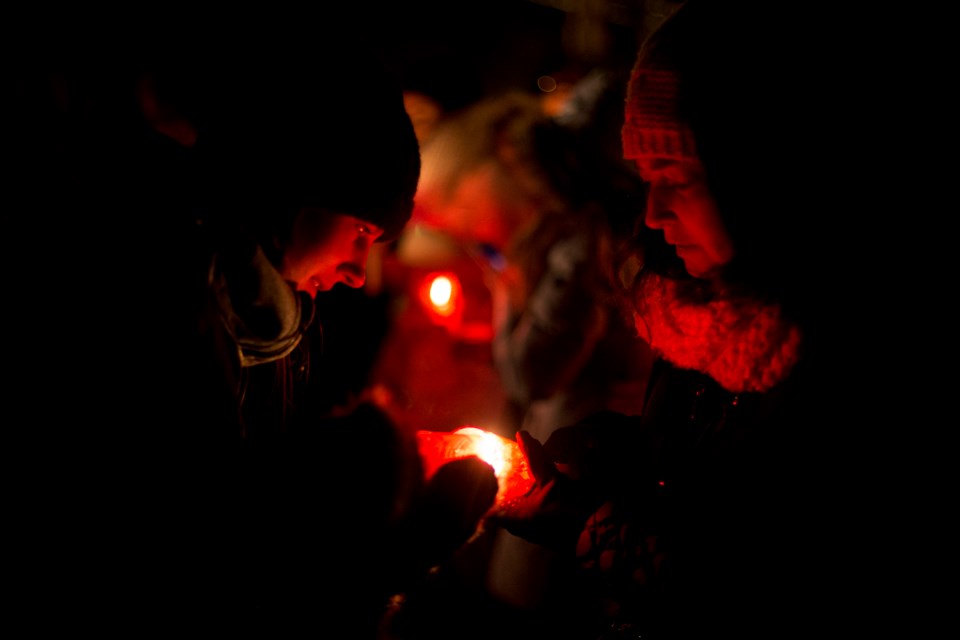On Dec. 6, 1989 Marc Lépin killed 14 women at École Polytechnique in Montreal, Que. — their names were Geneviève Bergeron, Hélène Colgan, Nathalie Croteau, Barbara Daigneault, Anne-Marie Edward, Maud Haviernick, Maryse Laganière, Maryse Leclair, Anne-Marie Lemay, Sonia Pelletier, Michèle Richard, Annie St-Arneault, Annie Turcotte and Barbara Klucznik-Widajewicz.
Jessica St. Peter, local organizer of the Dec. 6th Vigil held Wednesday evening, said she is thankful there hasn’t been another event of that significance in Canada since, but she notes gender-based violence still occurs every day in this country.
The National Day of Remembrance and Action on Violence Against Women is observed every year on Dec. 6 and candlelight vigil and a moment of silence were held in Marianne’s Park during the event.
2017 has been a remarkable year for the advancement of the conversation around sexual assault and harassment, as the hashtag #metoo went viral on social media.
This year, celebrities and average citizens alike have been sharing stories of being victimized and on Tuesday Time Magazine named those ’Silence Breakers’ as Persons of the Year.
St. Peter said it was amazing to see The Silence Breakers recognized for their contribution to social change.
“This was about people whose lives have been completely turned around by coming forward,” said St. Peter.
“For once the conversation isn’t being silenced,” she added.
The most important thing, said St. Peter, is that people are actually talking about gender-based violence.
At one point during the 1989 massacre, Lépin reportedly separated the women from the men before killing six, telling them he was ‘fighting feminism’.
St. Peter, who works as a public educator with Guelph Wellington Women in Crisis, said hatred of women is a learned behaviour.
“Men are not born to be bad people and women are not born to be victimized. We have a responsibility to change how we interact with each other. If we change what we say we can change the future generations,” she said.
According to statistics released by Women in Crisis, every year hundreds of women in Canada are seriously injured or killed at the hands of an intimate partner.
“We want to highlight the reality of the stats and the realities that women are often the target of gender-based violence,” she said.
Only a small percentage of men are perpetrators, said St. Peter. The majority of men could be considered champions of women, she added.
The location of the vigil is itself significant, as Marianne's Park is named after Marianne Goulden — a volunteer and staff member at Women in Crisis who was stabbed to death by her partner in January of 1992.
Immediately prior to the vigil in Marianne’s Park, participants gathered at The Boathouse to reflect on the massacre and to hold a moment of silence in remembrance of the victims.
A total of 28 people were shot during the 1989 massacre, all but four of them were women.
St. Peter acknowledged men can be also be victimized in many ways and many are not comfortable with coming forward.
“I would never say to anybody that it isn’t about ending violence against everybody, because it is. Similar to equity and equality we need to realize that disproportionately women are victimized and when we look at it we want to minimize that imbalance and emphasize healthy relationships,” said St. Peter.
